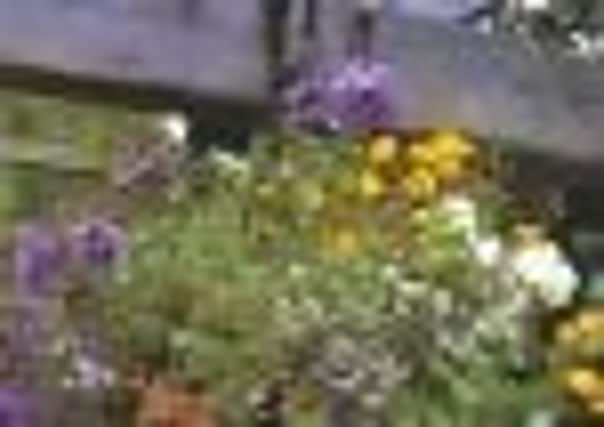Beware basket cases


But they do need to be cared for. Plant them and leave them and they’ll quickly become pockets of dead and dying plants interspaced with weeds.
So, regular watering (despite the flooding) and feeding are essential to keep hanging baskets and decorative patio containers looking good.
Advertisement
Hide AdAdvertisement
Hide AdAnd find time to pick over containers to remove dead flowerheads. This will encourage more blooms and prolong the seasonal show.
Take extra time deadheading fuchsias or they will produce seed pods the size of grapes, using up plenty of plant energy in the process. Similarly, don’t be frightened of cutting back any long, trailing plant material which is showing bare flowerless patches. Some trailing petunias and nasturtiums are inclined to go on the rampage but they can be cut back quite hard without harming the plants.
Thanks to the deluges of our wonderful early summer, it’s likely that most gardeners (even those in the southern half of England) will be able to use hosepipes this summer. So feeding containers once a week with something like the hose-end Miracle-Gro Liquafeed system is back on the agenda.
It’s a relatively quick and convenient way to getting the food to where it matters, but the more traditional of gardeners can still dissolve the blue crystals in a watering can and wet the compost. But to save water, always fit a drip tray or saucer under the pot. This will allow the compost to suck back any excess water without it running to waste.
Advertisement
Hide AdAdvertisement
Hide AdA hose-end feeding system allows you to treat a whole garden in a few minutes. Fit the feeder to the end of a hose and screw in a bottle of concentrated plant food. You can then simply water your garden and decide when to add the nutrients to feed your plants over the leaves and around the roots. It dissolves the right amount automatically.
Alternatively, use slow-release plant food granules. They look like tiny, tiny eggs, but once popped into the compost, they start to break down, providing nutrients for up to three months. They’re a boon for the forgetful or busy gardener; just remember to keep up with the watering because, daft as it sounds, rainfall is rarely sufficient to do the job properly.